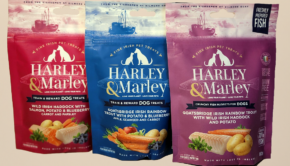Over half (51%) believe there’s a lack of transparency in influencer marketing: ASAI

Over 40% believe influencers to be more responsible with advertising today compared to three years ago
23 February 2021
Just over half (51%) of people in Ireland say they are concerned by a lack of transparency in influencer marketing, according to recent research from the Advertising Standards Authority for Ireland (ASAI), the independent, self-regulatory body.
The research looks at the influencer industry in Ireland and reveals the impact on consumer behaviour and attitudes. The survey results are based on the views of 1,224 participants across a broad demographic, interviewed online and representative of the adult population.
Nearly three in four people (73%) are familiar with the practice of influencer marketing, with a majority (80%) believing that when an influencer posts an ad, they are being paid by the brand to post positive content and that any mentions of a brand in a post means it is advertising (75%).
The research found that while 76% have used social media for tips and inspiration, 57% find too much sponsored content ‘annoying’. Similarly, the majority of Irish adults (59%) find over edited photos ‘annoying’ as well as influencers who do not seem authentic or misrepresent real life (59%).
Additional bugbears include content that takes advantage of impressionable audiences (52%) and repetitive posts (49%). However, 42% believe influencers to be more responsible with advertising that they were three years ago.
“Over the last number of years influencers have cemented their place in the digital advertising space and this is set to increase further this year and beyond,” said Orla Twomey, chief executive of the ASAI. “However, with power lies great responsibility as consumers are demanding more from the influencers they follow and trust. The report findings prove that if influencer marketing is to sustain and deliver desired ROI, trust and transparency needs to be established every step of the way, from influencer selection right through to campaign delivery.”
“Although there has been vast improvement in recent years,” she added, “influencers and brands alike will need to step up and build more authentic campaigns that resonate with the consumer as doing so will provide a more meaningful experience for all involved.”
The research also provides insight into the efficacy of online advertising, with two thirds (66%) of social media users able to spontaneously recall hashtags or phrases such as #ad, #sponsored or #brandambassador used to identify advertising content.
The ASAI has strict guidelines around how influencer content should be flagged having introduced guidance on the ‘Recognisability of Marketing Communications’ – covering commercial content created on behalf of brands as well as commercial content created by influencers for their own products and services.
To coincide with the second wave of research results, the ASAI hosted a webinar earlier today called ‘#InfluencerMarketing in 2021 and beyond – retaining trust through transparency’.
*(Source methodology: The research was carried out by Amárach Research. Fieldwork took place from 21 – 23 October 2020 with a sample of 1,224 participants)



 Print
Print






Fans 0
Followers